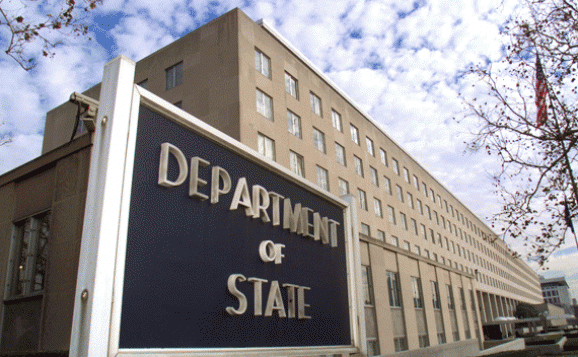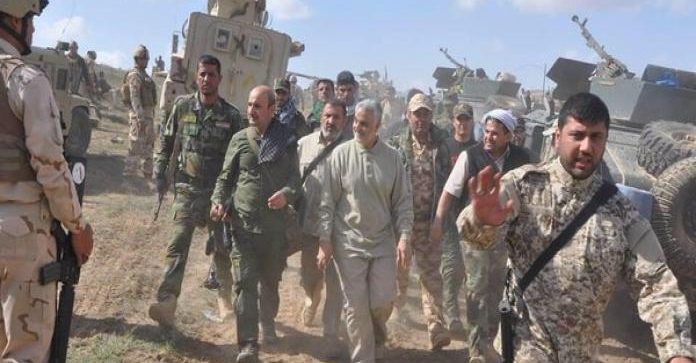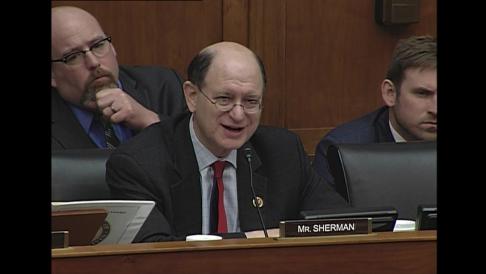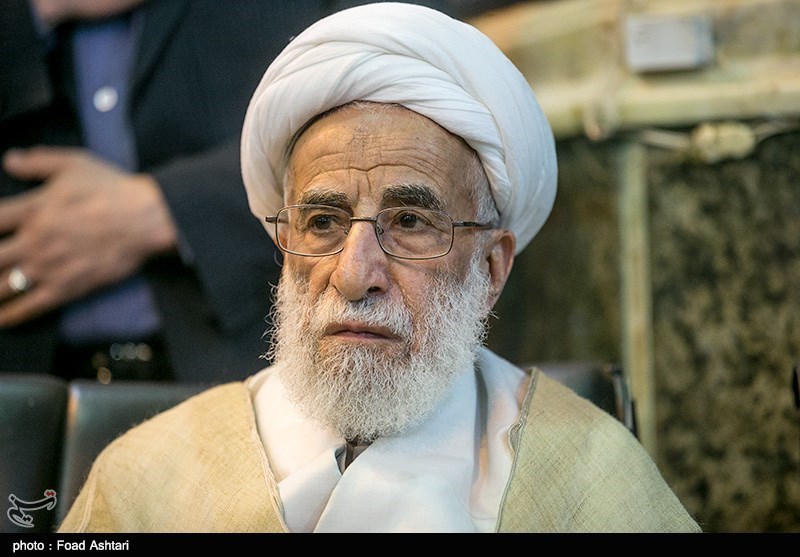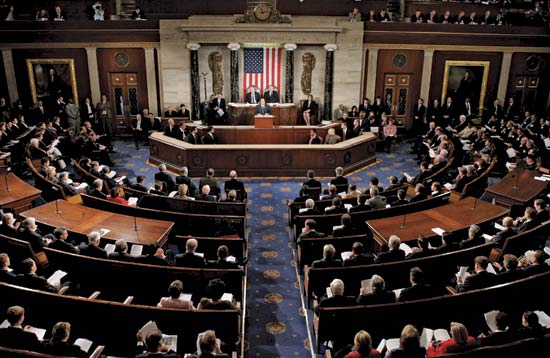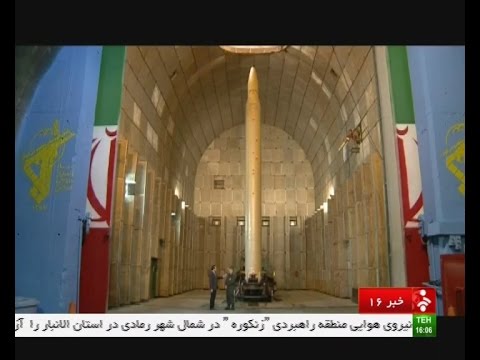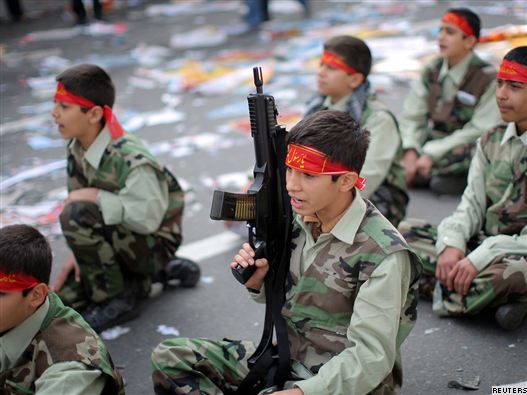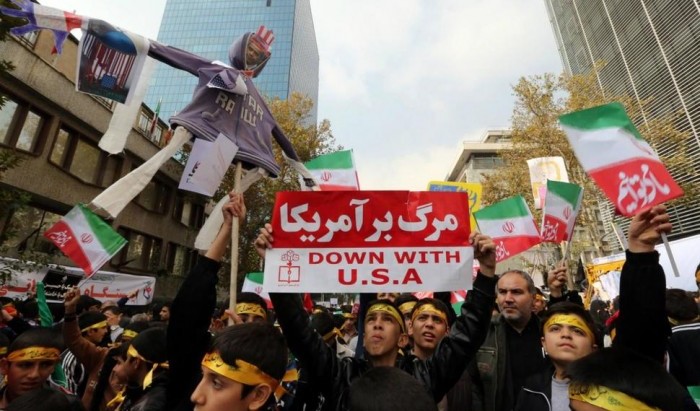Iran’s top mullah, Ali Khamenei, used his weekly appearance on state-run television to renew his hostility to the West and reinforce the commitment by the regime to pursuing policies that advance its own agenda of expanding the regime’s influence and control over the Middle East.
The statement by Khamenei, made in a nationally televised speech, was the latest in a series of signals that the regime’s senior leadership was not likely to allow any easing of hostility toward what he called “many small and big enemies”, referring to the U.S. and the West.
While much of the vitriol he directed at the U.S. and its allies is historically the same as he usually trowels out in these speeches, it is noteworthy to read media reports on the growing dissatisfaction within the regime about the inability to generate the significant economic benefits from the nuclear deal reached last year.
Much of that inability is attributed to the inept management of the Iranian economy by the mullahs in which corruptions runs deep and wide throughout a system rigged to benefit the ruling elites and the Revolutionary Guard Corps.
Some of that also is attributed to U.S. sanctions still in place not related to the nuclear deal, but linked to the regime’s historic support for terrorism and abysmal human rights record which prevents Iran from having access to U.S. currency markets and exchanges. These restrictions have stymied efforts by the regime to broaden its foreign trade, especially with European Union and Asian financial institutions reluctant to run afoul of any future U.S. sanctions.
Predictably the mullahs in Tehran and their allies in the Iran lobby have decried these sanctions and accuse the U.S. of trying to sabotage the nuclear deal, which is an absurd argument to make since the Obama administration has done virtually everything in its power to accommodate the Iranian regime including leading Americans astray with false arguments in support of the deal to doctoring official State Department video to cover up references to the early start of negotiations with hardliners in Tehran.
“They use human rights, terrorism … as pretexts to avoid fulfilling their commitments,” Khamenei said.
“If we remain strong and united and revolutionary, those who are trying to bully Iran and are against us will not succeed,” he told a gathering to commemorate the anniversary of the death of the founder of the Velayat-e-Faqih (The mullah’s supreme leader), Rouhollah Khomeini, in 1989.
Khamenei referred to Iran’s “important” role in the Middle East’s political direction, stating that Iran is the only obstacle preventing the triumph of Washington’s strategy for the volatile Middle East region.
They were planning for a “new Middle East”, a “greater Middle East”, several years ago, but their plans for Iraq, Syria, Lebanon and the Palestinian territories, have failed due to Iran’s defiance, Khamenei said.
Khamenei’s comments point out the regime’s expansionist policies to create an arc of Shia influence stretching from the Mediterranean to the Indian Ocean and have used terrorist proxies such as Hezbollah, armed militias in Iraq and rebel groups such as the Houthis in Yemen in blatant military efforts to topple governments, expel undesirables such as Christians and Sunni Muslims, and persecute dissidents.
The map of the Middle East is basically a human rights wasteland unlike anything the world has seen since the heyday of terrorism and Cold War in the 1970s, that in the absence of a firm policy towards the mullahs in Tehran, the mullahs have been eager to exploit and take advantage of.
The determination of the Iranian regime to push past the boundaries of the nuclear deal and make it a shambles was again on display as the Iranian regime announced the launch of an offshore bank on one of its Gulf islands according to a report by the regime’s IRNA news agency, as it continues to seek ways around restrictions on international payments.
The bank will be set up on Kish Island, which has been developed as a tourism destination and a free trade zone over the past few decades. The aim is to tap into rising demand for cross-border banking transactions, according to comments by Ali Jirofti, deputy head of the Kish Free Zone Organization. He told IRNA on June 5 that the new, unnamed offshore bank will be able to transfer money and facilitate domestic and foreign investment activities.
The establishment of such an offshore facility would make a mockery of sanctions on Iran for human rights and terrorism violations and if allowed, it would prove devastating in efforts to hold the regime accountable for its appalling human rights record.
Meanwhile, the U.S. State Department released its annual report on terrorism and again listed the Iranian regime as a chief sponsor of terrorism worldwide.
Predictably the regime rejected the damning report.
As in many previous years, the report identified Iran as the world’s “foremost state sponsor of terrorism in 2015” through its financing, training and equipping of various armed groups, notably Lebanon’s Hezbollah, as well as the government of Syrian President Bashar Assad.
The report said that despite reaching a landmark agreement with world powers on its nuclear program, Iran continued to use the Quds Force of its Revolutionary Guard to create instability throughout the Middle East.
In addition to arming Hezbollah and the Assad government, Iran also provided weapons and other assistance to militants in Bahrain and remained active in supporting groups such as Hamas, the report said.
The report is an annual rite of summer now to point a bloody finger at the mullahs. It is a reminder never to allow wiggle room to the mullahs and reinforce the efforts of Iranian dissident groups and human rights organizations working for freedom in Iran.
By Michael Tomlinson
